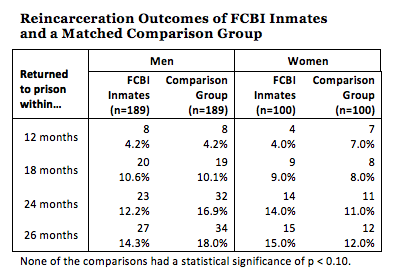
New dorm programs opened recognized as positive subcultures within the prisons. What stressors exist for incarcerated women.
Faith based programs are administered by who.
Faith based programs in corrections. Correctional agencies may choose to offer rehabilitative offender programming that uses a faith-based model. Within institutions these initiatives are offered in addition to standard opportunities for inmates to observe their own religious practices. Many prisons and jails have separate housing units with a.
The Bureau of Justice Assistance BJA supports collaboration between state and local agencies and faith-based and community organizations to meet the needs of offenders returning to their communities from prisons and jailsUnder the Second Chance Act BJA funds reentry programs across the country providing services ranging from substance abuse treatment to housingFaith-based groups have a. Faith-based programs residential or nonresidential that serve adult inmates OConnor 2005. Mears et al 2006.
To date many of the studies of faith-based corrections programs have produced inconclusive or tentative findings and have been characterized by major methodological limitations Mears et al 2006. This study surveyed faith-based in-prison and reentry programs across the United States in order to identify key program characteristics and determine the extent and manner in which faith or spirituality infuses program content and activities. IFI is a faith-based reentry program that operates in six states across the country.
The program begins 18 to 24 months before an individual is released from prison and provides ongoing mentoring and support for 12 months after release. In the late 1990s the Florida Legislature found that faith-based programs decrease recidivism and develop new value systems for participating inmates. As of 2005 19 states and the federal government had some sort of residential faith-based program aimed at rehabilitating participating prisoners by teaching them subjects like ethical decision-making anger management victim restitution and substance abuse in conjunction with religious principles.
One of them the InnerChange Freedom Initiative program in Iowa was struck down on Establishment Clause grounds in 2006 but various faith-based prison programs. Your readings this week includes a paper on faith-based programs in prisons to drug treatment and gender issues associated with incarcerated women. For this module your assignment is to write a critical response on one of the following issues.
What stressors exist for incarcerated women. What are the issues with faith-based programs. Faith based volunteers greatly assist the chaplains to provide spiritual programming opportunities to offenders of all faiths in accordance with correctional guidelines.
MCC has the following religious volunteer groups. Innovative Programs provided through MCC Community Volunteers. Faith-Based Treatment long term this program is six months to one year one must commit to six months for entry.
Help Praisealujah Discipleship Today 206 251-8971. Faith based programs have some sort of _____ or _____ connection. Faith based programs are administered by who.
Faith based organizations. Example of faith based program in a correctional facility. Community religious services offer what kind of training.
The Strength in Families program is a Department of Corrections inmate program that is funded by a federal Health and Human Services Administration for Children and Families grant also known as the ReFORM grant and offered in selected state correctional facilities for fathers returning to Clark Cowlitz Lewis Pierce and Thurston counties. Facilitated the inception of faith and character based programs in corrections. In order to determine the effectiveness or success of faith and character based programs in corrections the parameters for effectiveness must be established.
Methods The methods used were personal interviews and. The PEP which began in Texas in 2004 also offers faith-based and values-based correctional programming. The program describes itself as faith-driven and offers both business training and character assessments to prisoners ultimately asking the prisoners to produce a business plan for future re-entry.
According to an assessment of the program conducted by Baylor University. Faith-based organizations offer training in values vocations and skills. They have been proven to be some of the most effective methods of stopping the revolving door of jails and prisons Allowing faith groups to provide such programs will enable prisoners to thrive in society as productive and law-abiding community members.
In 2001 landmark legislation addresses transition and community links in prisons expanding faith-based dorm program to 6 additional prisons. New dorm programs opened recognized as positive subcultures within the prisons. Different state correctional models that administer faith- or character-based housing programs to find the most effec-tive way the transitional dormitory concept could be deliv-ered in the Indiana correctional system.
Programs in Georgia Florida and Louisiana were examined because they combined voluntary faith- and character-based hous-. A state task force recommended creating five more faith-based facilities. The InnerChange program at Vance is open on a voluntary basis to men with less than two years left on their sentences.